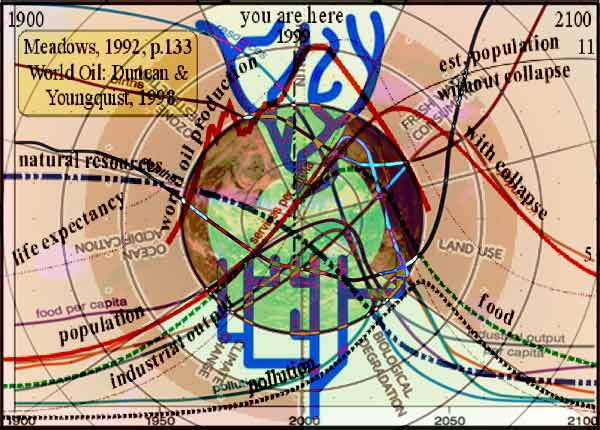
Before you raise your voice, please allow me to say that I do indeed know this starts to feel like a set of Russian dolls, and this is a re-run of a re-run. It’s just, I didn’t start it. Got a mail yesterday from the people at OpEdNews.com asking if I would allow them to repost something I wrote over a year ago. And since I’m notoriously bad at remembering anything I wrote even just 24 hours ago, when I read what they wanted to republish, it was almost like a whole new world opened up for me. And I kind of liked it.
And only then I saw that what they had read, which was published May 2, 2015 as Quote Of The Year. And The Next. And The One After, was actually largely a rerun of a January 1 2013 article. But, you know, when someone tells you “Your essay is excellent. And as one who has been closely attuned to such matters for nearly 50 years I can say with confidence that your theme is fresh and current as any other we should be reading and heeding today. In fact, I think it is timeless.”, A) you feel young, and B) you say: who am I to disagree with that?
So this today went up at OpEdNews.com, and is now once again up at The Automatic Earth as well. Because I do still think it’s relevant and important to acknowledge that “we are going to evolve through crisis, not through proactive change.”, and that we are nowhere near realizing how true that is, and how much that denial, unfortunately, guides our existence. We’re either not even smart monkeys, or we’re that at best. We need a lot more self-reflection than we are getting, or we’re going down. And my bet, much as it pains me, is on door no. 2. From May 5, 2015:



I very rarely read back any of the essays I write. But maybe that’s not always a good thing. Especially when they deal with larger underlying issues beneath the problems we find ourselves in, why these problems exist in the first place, and what we can and will do to deal with them. Not all of these things can and perhaps should be re-written time and again. Commentary on daily events calls for new articles, but attempts to define the more in-depth human behavior behind these events should, if they are executed well, be more timeless.
Not that I would want to judge my own work, I’ll leave that to others, but I can still re-read something and think: that’s something I would like to read if someone else had written it. Since a friend yesterday sent me an email that referenced the essay below, I did go through it again and thought it’s worth republishing here. It’s from New Year’s Day 2013, or almost 2.5 years old, which should be a long enough time gap that many present day readers of The Automatic Earth haven’t read it yet, and long enough for those who have to ‘enjoy’ it all over again.
I am not very optimistic about the fate of mankind as it is, and that has a lot to do with what I cite here, that while our problems tend to evolve in exponential ways, our attempts at solving them move in linear fashion. That is true as much for the problems we ourselves create as it is for those that – seem to – ‘simply happen’. I think it would be very beneficial for us if we were to admit to our limits when it comes to solving large scale issues, because that might change the behavior we exhibit when creating these issues.
In that sense, the distinction made by Dennis Meadows below between ‘universal problems’ and ‘global problems’ may be very useful. The former concerns issues we all face, but can -try to – solve at a more local level, the latter deals with those issues that need planet-wide responses – and hardly ever get solved if at all. The human capacity for denial and deceit plays a formidable role in this.
I know that this is not a generally accepted paradigm, but that I put down to the same denial and deceit. We like to see ourselves as mighty smart demi-gods capable of solving any problem. But that is precisely, I think, the no. 1 factor in preventing us from solving them. And I don’t see that changing: we’re simple not smart enough to acknowledge our own limitations. Therefore, as Meadows says: “we are going to evolve through crisis, not through proactive change.” Here’s from January 1 2013:



Ilargi: I came upon this quote a few weeks ago in an interview that Der Spiegel had with Dennis Meadows, co-author of the Limits to Growth report published by the Club of Rome 40 years ago. Yes, the report that has been much maligned and later largely rehabilitated. But that’s not my topic here, and neither is Meadows himself. It’s the quote, and it pretty much hasn’t left me alone since I read it.
Here’s the short version:
[..] … we are going to evolve through crisis, not through proactive change.
And here it is in its context:









Leave A Comment